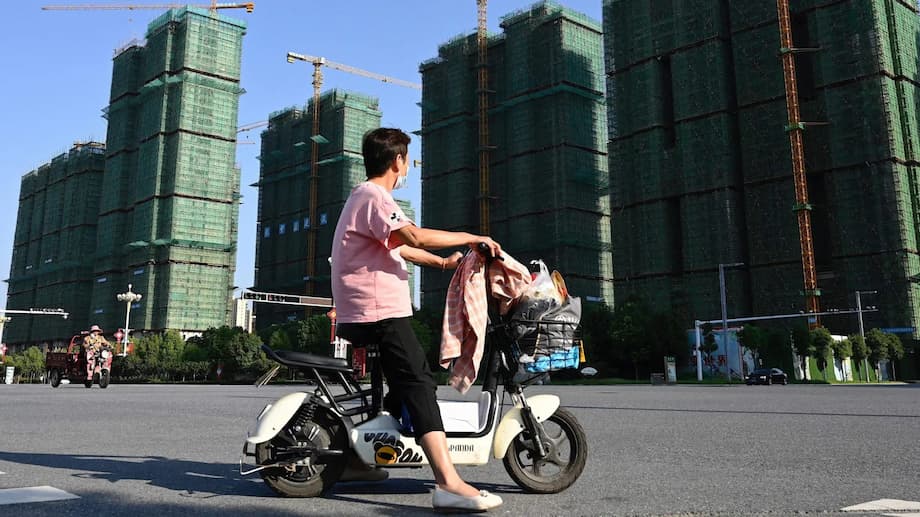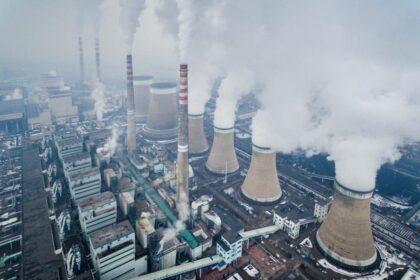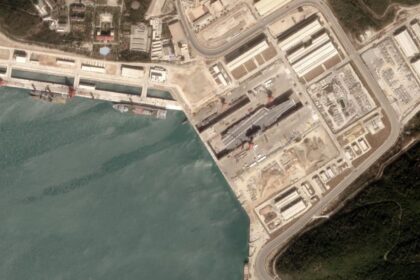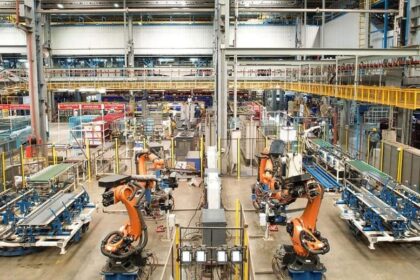The Fall of Evergrande: A Symbolic End to China’s Real Estate Boom
On Monday, the shares of China Evergrande Group, once the country’s largest and most ambitious property developer, will be delisted from the Hong Kong stock exchange. This marks a dramatic and final chapter in the saga of a company that, at its peak, was valued at over $50 billion and stood as a symbol of China’s meteoric economic rise. Now, Evergrande’s collapse has become a cautionary tale, shaking the foundations of China’s property market and sending ripples across the global economy.
Evergrande’s spectacular downfall is not just a story of corporate mismanagement and excessive debt. It is a window into the vulnerabilities of China’s economic model, the risks of unchecked speculation, and the challenges facing a nation in transition from breakneck growth to a more sustainable future.
How Did Evergrande Become So Big—and So Fragile?
Founded in 1996 by Hui Ka Yan, a former steel worker from rural Henan province, Evergrande rode the wave of China’s urbanization and housing privatization. The company’s business model was simple but aggressive: borrow heavily to buy land, pre-sell apartments before they were built, and use the proceeds to pay off lenders and fund new projects. As home prices soared, this approach turned Hui into Asia’s richest man by 2017 and made Evergrande a household name across China.
By the late 2010s, Evergrande had more than 1,300 projects in over 280 cities, diversified into electric vehicles, healthcare, tourism, and even owned China’s most successful football team, Guangzhou FC. But beneath the surface, the company was dangerously overleveraged, with debts exceeding $300 billion—making it the world’s most indebted property developer.
Evergrande’s rapid expansion was fueled by easy credit and a speculative property market, where homes were often bought not to live in, but as investments expected to appreciate. The company also engaged in risky practices, such as encouraging employees to buy its own wealth management products and using complex financial instruments to mask its true liabilities. By 2016, some staff were reportedly asked to spend up to half their salaries on these products, artificially boosting the company’s apparent profitability.
The Turning Point: Beijing’s Crackdown on Debt
In 2020, alarmed by the ballooning debt in the property sector, Chinese regulators introduced the “three red lines” policy, setting strict limits on how much developers could borrow. For Evergrande, whose business depended on constant refinancing, this was a death knell. The company began offering steep discounts to sell properties and raise cash, but it was not enough. By late 2021, Evergrande defaulted on some of its overseas debts, and its shares lost more than 99% of their value.
Legal battles ensued, culminating in a Hong Kong court ordering Evergrande’s liquidation in January 2024. The company’s founder, Hui Ka Yan, was fined $6.5 million and banned from China’s capital markets for life after it was revealed Evergrande had overstated its revenue by $78 billion. Liquidators are now trying to recover what they can for creditors, but with most of Evergrande’s assets in mainland China—outside Hong Kong’s jurisdiction—foreign investors are unlikely to see much return.
Why Evergrande’s Collapse Matters for China—and the World
Evergrande’s implosion is not an isolated event. It is the most visible symptom of a broader crisis in China’s property sector, which has been a key engine of the country’s economic growth for decades. Real estate and related industries account for nearly 30% of China’s GDP, and local governments have long relied on land sales to developers as a major source of revenue.
The collapse has triggered a domino effect. Other major developers, such as Country Garden and China South City Holdings, are now facing their own debt crises. Country Garden, for example, has more than 3,000 projects and $200 billion in liabilities, and its troubles threaten to surpass even Evergrande’s in scale. The sector’s woes have led to massive layoffs, pay cuts, and unfinished housing projects, leaving millions of Chinese homebuyers in limbo.
The Impact on Chinese Households and the Economy
For ordinary Chinese families, the property crisis is deeply personal. Nearly three-quarters of household wealth in China is tied to real estate. As housing prices have dropped by at least 30% in many cities, families have seen their savings evaporate, making them less likely to spend or invest. This has contributed to weak consumer demand, one of the main drags on China’s post-pandemic recovery.
At the same time, local governments are grappling with shrinking revenues from land sales, forcing them to cut spending or take on more debt. The property slump has also hurt suppliers, construction firms, and financial institutions linked to the sector, raising concerns about broader financial stability.
Global Implications: Will There Be a “Lehman Moment”?
Some analysts have compared Evergrande’s collapse to the 2008 fall of Lehman Brothers, which triggered a global financial crisis. However, most experts believe the risks of global contagion are limited. China’s financial system is less exposed to complex derivatives, and the government maintains tight control over banks and capital flows. Still, the crisis has shaken investor confidence in China, leading to a decline in foreign direct investment and raising questions about the country’s long-term growth prospects.
Internationally, the slowdown in China’s property market could affect commodity exporters like Australia, which relies heavily on Chinese demand for iron ore and other resources. A weaker Chinese economy could also mean lower global growth and increased trade tensions, especially if China tries to export its way out of trouble by flooding markets with cheap goods.
How Is Beijing Responding?
The Chinese government has so far avoided a direct bailout of Evergrande or other major developers, wary of encouraging further risky behavior in an already overleveraged industry. Instead, Beijing has focused on targeted measures to stabilize the property market and support the broader economy. These include:
- Lowering mortgage rates and easing restrictions on home purchases
- Providing funds for affordable housing and unfinished projects
- Encouraging banks to lend to financially sound developers
- Stimulating consumer spending through incentives for electric cars and household goods
Despite these efforts, China’s economic growth has slowed to around 5%—still robust by global standards, but a far cry from the double-digit rates of the past. The government’s priorities are shifting away from real estate toward high-tech industries such as renewable energy, electric vehicles, and robotics, as President Xi Jinping seeks to steer the country into a new era of development.
Challenges Ahead: Can the Property Market Recover?
Most analysts agree that China’s property crisis is far from over. Goldman Sachs warned in June that housing prices could continue to fall until at least 2027, and experts estimate it may take another two years for demand to catch up with supply. The government’s reluctance to bail out failing developers means more companies are likely to collapse, and the recovery, when it comes, will be slow and uneven.
Meanwhile, the drawn-out liquidation of Evergrande is expected to be complex and contentious. With over 90% of its assets in mainland China, foreign creditors face an uphill battle to recover their investments. The outcome will be closely watched by international investors, who are already wary of the risks of doing business in China.
Evergrande’s Legacy: Lessons for China and Beyond
Evergrande’s rise and fall encapsulate the strengths and weaknesses of China’s economic model. The company’s success was built on the back of rapid urbanization, easy credit, and speculative investment—factors that fueled decades of growth but also created dangerous imbalances. Its collapse has exposed the limits of debt-driven expansion and the need for more sustainable, transparent business practices.
For China, the crisis is a wake-up call. The government must balance the need to prevent social unrest—especially among homebuyers who have paid for unfinished apartments—with the imperative to avoid moral hazard and rein in excessive risk-taking. The shift toward high-tech industries and domestic consumption is underway, but the transition will be challenging and fraught with uncertainty.
In Summary
- Evergrande, once China’s largest property developer, will be delisted from the Hong Kong stock exchange after collapsing under $300 billion in debt.
- The company’s fall has triggered a broader crisis in China’s property sector, leading to layoffs, unfinished projects, and falling home prices.
- Ordinary Chinese families, whose wealth is heavily tied to real estate, have seen their savings shrink, dampening consumer spending and economic growth.
- The Chinese government has avoided direct bailouts, instead focusing on targeted measures to stabilize the market and support the economy.
- Global contagion risks are limited, but the crisis has shaken investor confidence and could impact commodity exporters and global growth.
- China’s property market is expected to remain weak for several years, as the government shifts its focus to high-tech industries and more sustainable growth.
- Evergrande’s collapse serves as a warning about the dangers of excessive debt and speculation, both in China and around the world.












